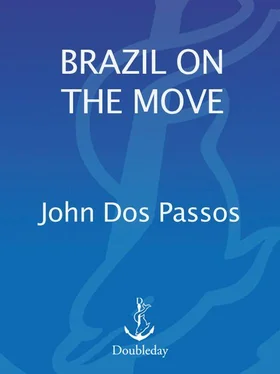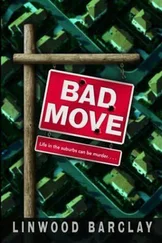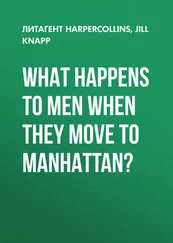So, this cloudy August morning, it is the Novacap Beechcraft which is speeding my wife and me and Dr. Israél and his wife, Dona Cora, on an excursion to visit the construction work on the new capital.
Already we are beyond Belo Horizonte. Some time ago the copilot pointed out a light smudge of smoke blurring the city’s clustered buildings on the northern horizon. Now Dr. Israél turns towards me and jabs at the window between us with a long forefinger. “The road, the road,” he shouts above the rumble of the twin motors. Sure enough a red gash cuts across the landscape from horizon to horizon. What look like tiny white caterpillars are finished concrete bridges. “The highroad from Belo Horizonte to Brasília,” he shouts exultantly. “Brasília’s lifeline.”
The plane drones on across higher drier hills where trails are faint and few. The rivers are clear green now, the sky clear blue above ranks of cottony clouds. The earth is very red, vaguely stained with verdigris where water flows.
The plane starts to bank. On the spinning tippedup landscape a few vague squares appear, streets, tileroofed houses, fenced fields. Buzzards cruise above. This is the town of João Pinheiro, named after Dr. Israél’s father. The pilot circles over what looks like a plowed field. When he lands the strip turns out just as bumpy as it looked from the air.
Groups of swarthy countrymen come forward to greet Dr. Israél, backcountry politicos, candongos, young engineers in white shirts and khaki pants. They have a scorched look from the dry upland sun. Their faces wear easy smiles. Their voices are lowpitched and cordial. They shake hands a little shyly. We all file out through a stile in a thorny redflowering hedge that keeps the cattle off the airstrip.
Dr. Israél takes charge. He packs us into jeeps and pickup trucks that string out into a procession along the new highway. Not surfaced yet. You can hardly see it for the driving red dust as we drive over mile after mile. The road lacks bridges; but already a determined motorist, so I’m told, can make his way in good weather from Belo Horizonte to Brasília. “A road means life,” Dr. Israél cries out.
We are ushered into a neat building at the edge of a dry gulch which the highway engineers have built themselves for a messhall. Tiny glasses of cachaça are brought out on trays. Congratulations are in order. Felicidades . Toasts. Dr. Israél makes a short speech.
Down in the gully below the messhall, plank tables have been laid out under a piece of aluminum roofing set on tall poles to let the breeze blow through. It’s a churrasco , a barbeque; in Maryland we’d call it a bull roast. There’s a smell of frizzling meat. Along a shallow trench full of smoldering hardwood, chunks of beef broil on long iron spikes. At the end a suckling pig on a spit revolves slowly above the coals.
Around the fringes, forming a smiling corridor as the guests are ushered through, bronze, mustard, tobaccocolored, tan to ruddy, are the packed faces of the candongos who are gravely waiting their turn. They have on their best straw hats, their best clean Sunday shirts. Brown eyes squint in the dazzle of sun as they peer into the shadow under the aluminum roof to watch the proceedings.
Dr. Israél bustles about with an expert air making exploratory cuts with his pocketknife into the broiling beef. Ay, he complains, some of it is tough.
He shrugs and includes in one halfapologetic gesture all the countryside crowding in about the tables. “Politics,” he whispers in my ear. “How do you say in America?” he asks with his creaky laugh. “Poleetical fences?”
He straightens himself up, suddenly quite serious. The greatness of all this is the road, he is telling the candongos. Politicians come and go but the road will continue.
He leans over to cut a couple of strips of crackling off the roasting pig and hands them with a disarming grin to his guests. “Tell them back in America what a road means in Brazil.”
An attentive little man brings us heaped plates. The upland air makes for an appetite. As soon as the throngs begin to back off from the ravaged tables Dr. Israél has us on our way back to the airstrip. He is explaining that he wants us to see Paracatu, the town his wife, Dona Cora’s family came from.
The airstrip in Paracatu is too short even for the Beechcraft, so a small singlemotor job has flown in to take us there. My wife and I get to whispering and tittering together as we squeeze into seats in the tiny plane. What strikes us funny is how similar the political goings on at the churrasco were to what would be happening at a political oyster roast back in the northern neck of Virginia where we come from. The language, the costumes, the skintints are different, but the basic behavior, the jockeyings for position, the prestige of family, the playing up to local prejudices are so much the same that it’s laughable. This is the sort of country politicking we have at home. Under all the differences there are similarities between the Brazilian and the North American forms of democracy. I try to explain to Dr. Israél that we ought to get along because we have so many of the same vices but neither his English nor my Portuguese can carry the weight of my explanation. The pilot has his motor roaring so we can’t hear anything anyway. We grin and make funny faces at each other and we’re airborne again.
The plane follows the red streak of the road, blurred with dust where bulldozers are at work. Again the emptiness of eroded brown hills. Soon the little plane is circling over a green field. There’s a river. Dr. Israél points out washouts in the red clay where people years ago panned gold out of the creek beds. Canebrakes, bananatrees, a few mangoes and papayas among narrow tiled roofs faded gray with age. Hardly a sign of crops. “What on earth do they live on,” we feel like asking, “in Paracatu?”
An ancient rattletrap Chevrolet is waiting. Dr. Israél bundles us into it. The cobbled alleys of this little town weren’t built for cars. They are steep and narrow. Sunscorched ponies are tethered outside of every store. Brown countrymen ride past under broad hats. A team of four yokes of white oxen comes lounging magnificently through the dust. The place has a look of tightened belts, poverty, and nakedness. It swarms with flies. Dr. Israél is explaining that this is what all the back country is like before the highway comes.
Years and years ago they had gold. Then they had hunger. Soon they will have the highway.
With a shudder and a gasp the Chevrolet rattles to a stop in the central square opposite the church. The Franciscans operate a school there. We have a short talk with the schoolmaster, an earnest young Hollander who speaks a little English. Meanwhile Dona Cora has gone off in search of antiques: already we share her admiration for the simple elegance and the solid construction of the colonial furniture still to be picked up in these parts “for a song.”
We go along while Dr. Israél pays a call on a dreamylooking blond man who is evidently the local precinct boss for the Social Democrats. We sit in his parlor drinking cafezinhos and listening politely while he and Dr. Israél talk hurried politics in sibilant halfwhispers.
Disheveled little boys stare at us with grave gray eyes through the tall barred window that lets in the light off the square. A flock of them. They all are sandyhaired like their father. Our host looks too young to have produced so many. My Lord how many children people have in this country! “How do you ever feed them?” we feel like asking.
The two Brazilians remember their guests and make the conversation general. The road, they expain, will pass close to Paracatu. It will mean prosperity, rising land values, every house in town will be worth more. There will be buses, trucks to ship crops out, stores to buy things in, probably a bank. The eyes of the precinct boss mist with emotion as he points towards his boys who are pushing their pale faces against the bars in the window. “These,” he says, “will have a better life than I have had.”
Читать дальше












